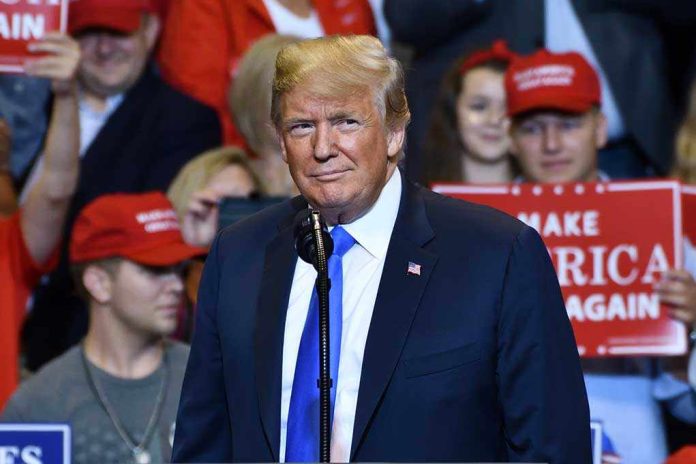
Florida shark diver Tanner Mansell, convicted of cutting NOAA research lines to free 19 sharks, has received a full presidential pardon from President Trump, restoring his voting rights and ability to continue his conservation work after years of legal battles.
Key Takeaways
- Florida diver Tanner Mansell received a presidential pardon from President Trump after being convicted of cutting a NOAA longline to free 19 sharks and a giant grouper in 2020.
- Mansell and his captain believed they were stopping illegal fishing and immediately reported their actions to wildlife officials.
- The conviction stripped Mansell of his rights to vote, own firearms, and travel internationally, significantly impacting his conservation work.
- The case gained White House attention after a judge from the U.S. Court of Appeals questioned why the prosecution had continued, and the Cato Institute published an article about it.
- The presidential pardon has restored Mansell’s rights and cleared his record, allowing him to continue his environmental conservation efforts.
A Conservationist’s Legal Nightmare
In August 2020, Florida-based shark diver Tanner Mansell and charter boat captain John Moore Jr. encountered what they believed was an illegal fishing operation in Atlantic waters. Acting on their conservationist instincts, they cut a longline they discovered, freeing 19 sharks and a giant grouper. What the divers didn’t realize was that the line belonged to the National Oceanic and Atmospheric Administration (NOAA), conducting authorized research. This misunderstanding led to federal charges and a 2022 conviction for theft in a maritime zone, even though Mansell and Moore had reported their actions to wildlife officials.
Following their conviction, both men were ordered to pay over $3,300 in restitution. While they avoided prison time, the felony conviction stripped them of fundamental rights, including voting, firearm ownership, and international travel—a particularly devastating blow for Mansell, whose conservation work often required global travel. The restriction effectively hampered his ability to continue the environmental protection efforts to which he had dedicated his life. Throughout the ordeal, Mansell maintained that he and his team, which included a police chief and SWAT officer, genuinely believed they were preventing a crime.
Presidential Recognition of Environmental Stewardship
On May 28, President Trump granted a full presidential pardon to both Mansell and Moore, clearing their records completely. The pardon came after increasing scrutiny of the case from legal experts and conservation advocates. A judge from the U.S. Court of Appeals had previously commented that the case should never have proceeded, a statement that helped bring public attention to the divers’ plight. The Cato Institute subsequently published an article on the case, which ultimately caught the attention of the White House and led to the presidential action.
“The judge commented, and he commended us for our dedication to the environment. He gave out what my lawyer said was probably the lowest sentence ever,” Mansell, Florida shark diver.
The pardon announcement came as a complete surprise to Mansell, who was in the middle of a flight when his attorney called with the news. The emotional impact of having his rights restored after years of living with the consequences of what his attorney Ian Goldstein called an “honest mistake” was overwhelming. For Mansell, the pardon represented not just personal vindication but recognition of his genuine commitment to marine conservation and environmental protection, values that had guided his actions from the beginning.
Gratitude and Vindication
Mansell has expressed profound gratitude for the presidential pardon, emphasizing that despite his legal troubles, he has always maintained respect for law enforcement and the legal system. The pardon allows him to return to his conservation work without the impediments that have restricted him since the conviction. For Mansell and his supporters, the pardon represents a recognition that his intentions were honorable, even if his actions resulted in an unintended violation of federal regulations.
“I was getting a call from my lawyer, and I answered, and he said, ‘Well, I’ve got good news for you. You just got a full presidential pardon.’ I was speechless. I couldn’t even say thank you. I just soaked it in,” Tanner Mansell, Florida shark diver.
Mansell’s attorney, Ian Goldstein, has been vocal about the justice of the pardon, stating that he “can’t think of two individuals more deserving of a Presidential Pardon.” The case highlights the sometimes complex intersection between conservation efforts and regulatory frameworks, and raises questions about proportionality in punishing those who act with environmental protection in mind. President Trump’s decision to grant the pardon reinforces his administration’s support for individuals who face severe consequences for actions taken in good faith to protect natural resources.




